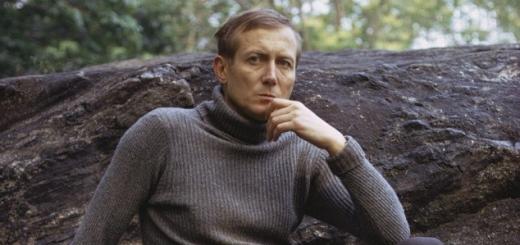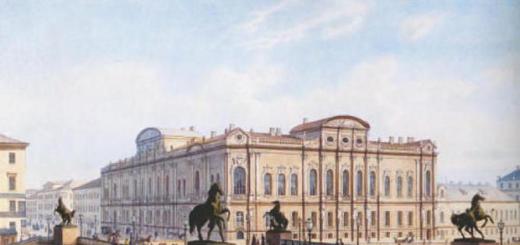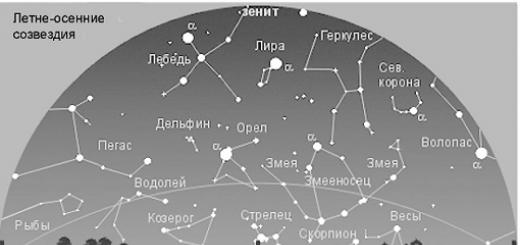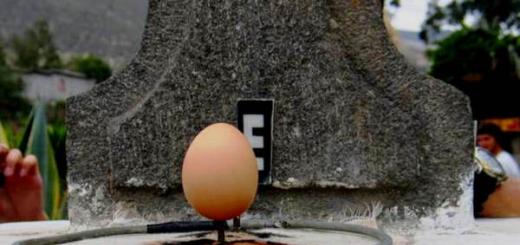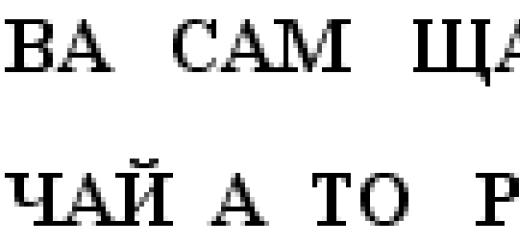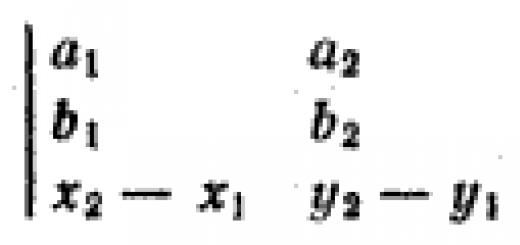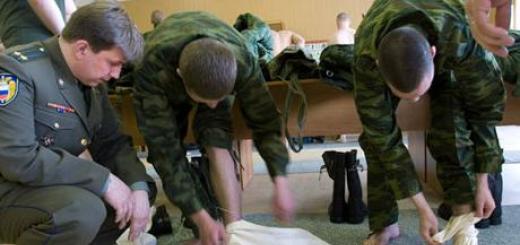When he flips through the last page of A. T. Tvardovsky's poem "Vasily Terkin", the years of its writing - 1941-1945 - are striking. That is, Tvardovsky wrote his work not from recollections, but, so to speak, "but on fresh tracks." He survived the war with his hero. Moreover, it is unlikely that the author, in the process of creating the poem, knew what would become of his hero tomorrow. Conceived as an image of a simple - perhaps even more rustic - Russian guy, which combines heroism and humor, Vasily Terkin has outgrown the boundaries of the writer's intention. He began to live an independent life, like any other participant in the war. "There is no plot in war," as Tvardovsky said, just as there is no clearly traced plot line in the poem. The poem is built in the form of a diary, a chronicle of the life of one person. Short episodes are often combined only by the main character, if viewed superficially. But in fact, "Vasily Terkin" has a fairly coherent plot, the plot of life in the war. It is also important that the poem has neither beginning nor end. The author emphasizes this. Such a construction allows them not to follow the development of the action, but simply to immerse themselves for a while in the reality created by the author's inspiration.
Tvardovsky showed us the war from all its sides. It can be ugly, scary, black. But even in the midst of hell there is a place for jokes, songs, music, laughter. People cannot live without it. Tvardovsky emphasizes that in Russian soldiers seriousness, concentration, readiness to risk oneself are combined with perseverance, recklessness, and a sense of humor. Perhaps this is what helped them endure the hardships of war.
An extensive picture of the war arises in the reader's mind, being created from small scenes, episodes, details. Soldier's everyday life and soldier's leisure - all this has a place in the poem.
Here, for example, is the chapter "Crossing", which is sometimes published even separately from the poem. Night, icy water, spotlights suddenly cutting through the darkness: before the reader is a picture sketched in very sparing strokes, but quite imaginable. This is just one of the episodes where Tvardovsky shows the naked face of war, its terrible grin.
In the poem, descriptions of battles are encountered more than once, but the chapter "Duel" makes the most indelible impression. Terkin one on one, without weapons, fights with the German. In order to reinforce the difference between the two soldiers, Russian and German, the poet presents the German as a rather repulsive creature. By and large, not two separate soldiers came together here, but two warring parties, so the episode takes on a nationwide scale. Terkin fights with the German fiercely and selflessly, and it is especially necessary to pay attention to the fact that the duel takes place one on one, no one sees them. In such a situation, it makes no sense to show your prowess, to show ostentatious heroism. Terkin fights because he sees it as his sacred duty:
You don't go to your death
For someone to see.
Okay b. And no - well...
Not everyone, of course, survived even in hospitals. Someone died in the hands of doctors, someone - right on the battlefield, not having time to say goodbye to their relatives. Letters home continued to go, but the man was no longer alive. This is war, it has its own laws. Tvardovsky writes about this in the chapter "Death and the Warrior". The dying soldier is talking to Death, who is leaning towards him, asking her to allow him at least the last time to visit his homeland, to see his relatives, or:
... Death, but Death, still me thereCan you say one word?
Half a word?
No I will not give...
Terkin survived that time. But there were millions of people who begged death to give them at least a little more time. Death is relentless, it does not measure time for its victims. Is it easy to die young? Half in jest, Tvardovsky writes about this: I don’t want to die in the summer, in the heat, or in the fall, in the slush, or in the winter, in the cold. But how hard it is to die in the spring, when all nature is reborn and calls to life!
Rarely, but even a soldier has "days off". Soldiers like to eat well, chat on peaceful topics, forgetting where they are, like to take a steam bath and sing, like to dance to the accordion. Do not mind sometimes and skip a glass or two of alcohol. A soldier is sometimes cheerful even in the face of the most terrible danger. He knows that every second could be his last, and yet he laughs. Laughing in spite of enemies, in spite of death.
It is immediately felt if a person writes about what he himself experienced, about what he saw and felt. There is truth in these works. "Vasily Terkin" belongs to the number of such books. This poem is not only about the war. It is about the native land, where the place of Borki in the swamp is as valuable as the capital itself. It is about millions of Terkins who have accomplished feats or simply fulfilled their sacred duty. It is about how the Russian people are able to unite in the years of trials. Therefore, one can rightfully call "Vasily Terkin" an encyclopedia of war.
A. T. Tvardovsky's poem "Vasily Terkin" is an outstanding work. Both its content and form are truly folk. The poem has become one of the most significant works about the Great Patriotic War. At first glance, it may seem that "Vasily Terkin" is just a series of episodes from the life of a single fighter. But, having carefully read and comprehended the whole poem, the reader gets a fairly complete picture of the course of the war - from the retreat in 1941 to the great victory.
War is hunger and cold, death, self-sacrifice, heroism, patience, deep pain for the motherland on fire. All this can be seen in Tvardovsky's poem. The poet painted impressive pictures of the war years. In the war, “you can live without food for a day, but more,” and all these hardships must be endured patiently and with dignity. You have to be ready to die every day.
A vivid picture was created by the poet in the chapter “Before the battle”. The native village of the commander turns out to be on the way of the fighters, and his heart shrinks from longing. He has to make his way to his home “along the wall”, because there is a war around, the Germans.
Ran in, snatched a nap,
Catch up with the war again ...
This is how Tvardovsky describes this short visit. There is no time for a fighter to enjoy the joy of a short meeting, but for his wife this holiday is “bitter, sad”, because miserable hours, if not minutes, are allotted to her for a meeting with the closest person and, perhaps, this is their last meeting. It is bitter for the commander to leave his home, because "maybe the Germans with guns will enter this house today."
With great respect, the poet speaks of a simple Russian woman who endured enormous suffering on her shoulders during the war years, and the poet gives her an earthly bow.
The last crumbs are given by the hostess to the soldier who entered their house on the way to victory. He is not a stranger to them, he is dear, because, like thousands of others, he goes to give his life for the Fatherland.
In the chapter "General" Tvardovsky shows the unity of a simple soldier and a general. The war became a common misfortune for them, one grief separated them from their home. War brings families together:
Today the wives are all kind,
Selfless enough
Even those that for the time being
There were just witches.
Love strengthens the desire for victory in the fighters, because "the love of a wife ... in war is stronger than war and, perhaps, death."
A tragic, typical picture is drawn by the poet in the chapter "About the Orphan Soldier". The hero of this episode, passing by his native places, does not recognize his native village of Krasny Most, does not find his home:
There is no window, no hut,
No hostess, even married,
No son, but there was, guys ...
The soldier cried about all this, but there was no one to cry about him.
Today we are responsible
For Russia, for the people
And for everything in the world.
The poet speaks of death easily, because this death is in the name of the Motherland: “a terrible battle is going on, a bloody, mortal battle is not for the sake of glory, but for the sake of life on earth.” Soldiers die at the crossing, die in unequal battles with the Germans, but still reach Berlin.
How is Terkin depicted in the chapter "Two Soldiers"? Why is she so named?
Terkin is depicted in this chapter even before the occupation of the village, where he met an old soldier and his wife in a rather prosperous peasant hut for those times. He was already an experienced fighter, a brave Russian guy, witty, not at a loss under any circumstances, a craftsman who knew both peasant life and the laws of soldier life. He quickly adjusted his grandfather's saw, repaired the clock, which a professional watchmaker would not undertake. Knowing well the life of the village, Terkin is sure that the old woman has fat in store: “There was no German, so there is!” The poet’s observations of how Terkin eats are very interesting: “He ate a lot, but not greedily, He saluted the appetizer ...” This is a trait of a working Russian person who knows how to work and appreciate bread. He is confident in victory over the enemy, although he understands that the path to it is long and difficult.
He sighed at the door
And said:
Let's go, father...
The chapter is titled "Two Soldiers" for a reason. The dialogue between grandfather and Terkin testifies to the continuity of generations of Russian soldiers, participants in the First World War and the Great Patriotic War.
Can. Both endured many severe trials in the war. What the grandfather can no longer do due to age and weakness, the soldier of the new generation can easily do. Terkin treats the old soldier with great respect, answers his questions seriously, shows knowledge of military traditions, which pleases his grandfather, even when arguing with him:
And they sit like brothers at the table, shoulder to shoulder.
Soldiers are talking
They argue amicably, hotly.
The reasoning of the young soldier pleases the old man, and he recognizes his right to equality: |
Worth discussing with me.
You are a soldier, although you are young,
A soldier is a brother to a soldier.
What attitude do the old man and Terkin show towards each other? How is this expressed in their words, deeds, gestures, manner of address?
Respectful, fraternal, friendly, and at the same time, to some extent competitive - these words can characterize the attitude towards each other of two soldiers, older and younger generations of the long past and current wars. They are united by a calm attitude towards exploding mines. An important detail for understanding their relationship to each other is Terkin's bow to the old woman (for hospitality, refreshments), and "to the soldier himself." "Brother" and "soldier" are the old man's most frequent appeals to Terkin. In turn, the young fighter calls the old man "grandfather", "master", "father", respectful words among the people.
What fabulous, ritual and folk-song traditions do you find in this chapter? What are they expressed in?
Folk song traditions are manifested in the rhythm of the verse, intonations, and the choreic meter characteristic of the song. The situation itself, adopted in fairy tales, “Once upon a time there was a grandfather and a woman” and a “good fellow” who helps them, is used in the chapter. The fairy-tale situation, when the guest points out to the old hostess the treat she has and she does not want to serve, and guesses where it is, was also used by Tvardovsky in re-registration in relation to the war. Folk poetic expressions “something is fine, then it’s foldable”, “blew, spat - what do you think, let’s go” and a host of others make the speech of the poem close to folklore.
What changes in Terkin's behavior and speech are found in the chapter "Grandfather and Woman"? What do you think is gained and what is lost by the soldier?
Three years have passed since the farewell of the "two soldiers" in the front-line village. During this time, both Terkin and the old people endured many trials: retreat, occupation, battles ... And finally, a new meeting - during the retreat of the Germans. And Terkin - at the head of the reconnaissance detachment. This is already matured, wiser Terkin, who is entrusted with leading the reconnaissance operation before the liberation of the village. In the original version, Tvardovsky wanted to portray him as an officer, but later decided to leave him as an ordinary soldier (the poem was called "The Book of a Soldier"), and therefore in the chapter "Grandfather and Woman" he is called "senior", "well done", "like even an officer. His humor is now distinguished by gravity, like all behavior. To the offer of the hostess to taste the salo, he now behaves not like the fairy-tale soldier in the chapter “Two Soldiers”, but with dignity and a good half-question joke:
- I would consider it an honor to have a bite,
But no, grandma, fat?
The most important thing is the confidence in the coming victory, that there will be no more retreats. Terkin himself is aware of his acquisitions. Now he is not just “a master lunatic with whom they sat at the table” and not only “he is whole for the time being”, “and now look who I will be, like even an officer.” There is also such an innovation in his communication with civilians who are tired of military hardships: “It's me, Vasily Terkin, I'm talking. And you do believe." He acquired the right to these words by his experience as a soldier.
Compare the farewell scenes in the chapters "Two Soldiers" and "Grandfather and Woman". What do they have in common and what
different? What does Terkin's recollection of the repaired clock say?
There is something in common in the plots of the chapters "Two Soldiers" and "Grandfather and Baba". This is, first of all, a treat with bacon, the question of whether our army will beat the enemy (in the second chapter - will there be retreats). But there are also differences. Now the woman herself is treating, who did not want to do this at the last meeting, and Terkin forced her to put up a treat, like a fairy-tale hero. Now the suffering peasant woman, from the joy of liberation and meeting with a dear person, a Russian soldier, herself insists that he refresh himself. Now he, accepting the treat, shows respect to the peasant house:
And he was in a hurry, but he still tasted it, He treated himself like a native.
Tobacco poured grandfather And said goodbye.
The clock is a very important detail that connects both chapters both in plot and in ideological terms. During the retreat, the Russian soldier repaired the clock, which for the family more symbolized a good past than was of practical value, and the fascist destroyer stole it. And we see the author's position, which affirms the moral superiority of the Russian warrior. Terkin does not forget about the clock and reassures the old woman with the promise to bring two clocks from Berlin, once again expressing his victorious optimism and natural humor.
What changes are taking place in the appearance of the old man and the old woman, in their behavior over (past years? What are they caused by?
Changes occur as a result of the suffering suffered in the occupation, the relentless fear of being killed. The aged grandfather seeks to predict the course of hostilities and answer the aspirations of the inhabitants when the long-awaited victory comes.
And it seemed to grandfather, -
Whether he wanted it or not,
In front of everyone for the victory. Personally, he held the answer.
And he no longer speaks with a sense of superiority, like an old soldier with a soldier of the younger generation, on the contrary, his attitude towards the current Terkin is full of admiration, as a defender of the motherland. The author himself, paying tribute to his grandfather's courage and patience, continues to call him a soldier.
The attitude towards one's spouse and from the side of the grandmother is also changing. If in the chapter "Two Soldiers" we read:
With whom she lived - did not respect,
With whom did you scold on the stove,
From whom she kept all the keys away from the household,
now she sees a protector in her husband, worries about him, feels like a weak being next to him.
A soldier went through two wars Whole, unharmed.
Spare him, projectile,
In hemp dear!
And the old man behaves like a protector. Taking a detachment of our troops from a distance for the Germans, he
For an ax - and in advance Shielded the old woman.
Your faithful death
No matter how bitter that moment is,
Decided to meet in battle
Holds his axe.
So, the general trials of the war hard times unite people and transfer their relations from the ordinary level to the level, one might say, romantically heroized. And it is no coincidence that Tvardovsky continues to call his grandfather a soldier.
What role do you think it plays in the poem?about the fighter Terkin, the chapter "About myself"?
The chapter "About Myself" gives an idea of the author's personality, his life path, reflections on the complexities of everyday life, the formation of his worldview, enrichment with life observations and conclusions. The author directly addresses the reader with the secret. The poetic reflection of the writer goes to the very heart of the reader, who is invited to check the author's reasoning. The desire to establish spiritual contact with him, direct appeal to him give a special lyricism, warmth, bring him closer to the hero, the author of the work, the events depicted.
The lyrical animation of the poem is strengthened by the fact that in the chapter "About Me" Tvardovsky makes Terkin his countryman, a native of the Smolensk region. The war for the hero and the author becomes a battle for the home and the road to it.
I tremble with sharp pain,
Malice bitter and holy.
Mother, father, sisters I am beyond that line.
I have the right to moan in pain And scream with anguish.
That which I praised with all my heart And loved is beyond that line.
What is the attitude of the poet to the motherland, native land? How is it presented in the chapter?
One of the important themes of the poem "Vasily Terkin" is the theme of the native land, native land. In the chapter "About myself" a large place is occupied by memories of the motherland, its nature and childhood, passed on this fertile land. “My dear mother earth,” the poet twice addresses his small homeland.
And one more appeal - "father's land." Of course, this is about the origins of life, the origins of Russian spirituality, received in the native family, both in a concrete and symbolic sense. For him, the homeland and childhood are one. This is a “nice forest”, which Tvardovsky colorfully describes, and “a stitch to the well”, and a courtyard, “where the sand is golden”, and ice on the river, and a native school, and a teacher. And of course, a feeling of great grief is expressed here that during the war this is "a land suffering in captivity."
What are the author's thoughts about his relationship with the character? What is the meaning of these arguments? Is it possible to say that in this chapter the unity of the lyrical and epic principles in the poem is achieved, a tragic harmony? Tvardovsky, Vasily Terkin. How is Terkin depicted in the chapter "Two Soldiers"?
This page searched for:
- how is the terkin in the chapter two soldiers why is it so named
- As depicted turkin in the chapter two soldiers
- what aspects of the character of Vasily Terkin are revealed in the chapter
- what aspects of the character of Vasily Terkin are revealed in the chapter two soldiers
- Vasily Terkin two soldiers analysis
War is a difficult and terrible time in the life of any nation. It is during the period of world confrontations that the fate of the nation is decided, and then it is very important not to lose self-esteem, self-respect, love for people. In a time of severe trials, during the Great Patriotic War, our entire country rose to defend the homeland against a common enemy. For writers, poets, journalists at that time, it was important to maintain the morale of the army, to morally help people in the rear.
A.T. Tvardovsky during the Great Patriotic War becomes
An exponent of the spirit of the soldiers, the common people. His poem "Vasily Terkin" helps people survive a terrible time, to believe in themselves, because the poem was created in the war chapter by chapter. The poem "Vasily Terkin" was written about the war, but the main thing for Alexander Tvardovsky was to show the reader how to live in a time of difficult trials. Therefore, the main character of his poem, Vasya Terkin, dances, plays a musical instrument, cooks dinner, jokes. The hero lives in the war, and for the writer this is very important, because in order to survive, any person needs to love life very much.
The composition of the poem also helps to reveal the military theme of the work. Each chapter has a complete structure, finished in thought. The writer explains this fact by the peculiarities of wartime; some of the readers may not live to see the next chapter, and for some it will not be possible to get a newspaper with a certain part of the poem. The title of each chapter (“Crossing”, “About the Reward”, “Two Soldiers”) reflects the event described. The connecting center of the poem is the image of the main character - Vasya Terkin, who not only raises the morale of the soldiers, but also helps people survive the hardships of wartime.
The poem was written in the difficult field conditions of wartime, so the language of the work was taken by the writer from life itself. In "Vasily Terkin" the reader will encounter many stylistic turns inherent in colloquial speech:
"Sorry, haven't heard from him in a while.
Maybe something bad happened?
Maybe there's trouble with Terkin?
Here there are synonyms, and rhetorical questions and exclamations, and folklore epithets and comparisons characteristic of a poetic work written for the people: “fool-bullet”. Tvardovsky brings the language of his creation closer to folk patterns, to living speech constructions understandable to every reader:
Terkin said at that moment:
"I'm over, the war is over."
Thus, the poem, as it were, in a leisurely manner, tells about the ups and downs of war, making the reader an accomplice of the events depicted. The problems raised by the writer in this work also help to reveal the military theme of the poem: attitude towards death, the ability to stand up for oneself and others, a sense of responsibility and duty to the motherland, the relationship between people at critical moments in life. Tvardovsky talks with the reader about the sore, uses a special artistic character - the image of the author. Chapters "About myself" appear in the poem. So the writer brings his main character closer to his own worldview. Together with his character, the author empathizes, sympathizes, feels satisfaction or resents:
From the first days of the bitter year,
In the difficult hour of the native land,
Not joking, Vasily Terkin,
We made friends with you ...
The war described by Alexander Trifonovich Tvardovsky in the poem does not seem to the reader to be a universal catastrophe, an inexpressible horror. Since the main character of the work - Vasya Terkin - is always able to survive in difficult conditions, laugh at himself, support a friend, and this is especially important for the reader - it means that there will be a different life, people will start laughing heartily, singing songs loudly, joking - peacetime will come . The poem "Vasily Terkin" is full of optimism, faith in a better future.
In a one minute war
He can't live without jokes
The jokes of the most unwise ...
... He does not live Without the truth,
Truth, straight into the soul of the beating.
On a halt
At a halt, Terkin explains to his new comrades what "sabantuy" is: a test of will, courage. It’s good if a person manages to behave with dignity in any situation, even if “thousands of German tanks are on him”. Terkin's stories are a success. The author wonders about the origin of his hero. Such as Terkin, "in every company there is always, and in every platoon." Terkin was wounded. Speaking about himself, he speaks on behalf of his regiment: "I was partly scattered, and partly exterminated." Terkin walked “hundreds of miles of his native land”, retreating along with units of the Soviet army, fought like a hero, but for some reason did not receive a medal. However, Terkin does not lose heart:
Look what's on your chest
And look what's ahead!
Before the fight
The army retreats. The soldiers feel guilty before the Soviet people, who, with their departure, will fall into the occupation. Terkin, "as a more ideological one", acts as a political instructor:
We will be alive - we will not die.
The time will come, we will return back,
What we have given, we will return.
The commander is sad: his native village is on the way. Terkin decides that he needs to go there. The commander's wife places the fighters in the hut, treats everyone, and takes care of the house. The children rejoice at their father, for the first moment it seems to them that he has come home after working in the field. Ho and the children already understand that the father will leave, and tomorrow, perhaps, the Germans will enter their hut. The commander himself does not sleep at night, chopping wood, trying to somehow help his mistress. The crying of children at dawn, when the commander and his fighters leave the house, still sounds in the ears of Terkin. Terkin dreams of entering this hospitable house when the army is liberating their land, "to bow to a simple good woman."
Crossing
During the crossing of the river, the Germans begin shelling. Many fighters are drowning. Only the first platoon (and Terkin with it) crosses to the other side. By nightfall, the surviving fighters no longer hope to see their comrades from the first platoon alive, believing that the Germans shot them all when landing on the shore. There is no connection with them. However, in the middle of the night, Terkin swims across the river in the opposite direction (in icy water) and reports to the colonel that the platoon is intact, waiting for further orders, asking to support the attack with artillery fire. Terkin promises to provide a crossing for the rest of his comrades. Terkin warms himself with alcohol, taking it inside. The crossing resumes at night.
The fight is holy and right.
Mortal combat is not for glory,
For life on earth.
About war
The year has come, the turn has come,
Today we are responsible
For Russia, for the people
And for everything in the world.
From Ivan to Thomas,
Dead or alive
All of us together - this is us,
That people, Russia.
Terkin wounded
Terkin in a rifle company. He pulls the wire. Enemy artillery fires at the chain. One projectile falls next to Terkin, but does not explode. Everyone is scared, but Terkin, who despises the danger, "turning to that projectile, relieved himself of a small need." Terkin notices the dugout and, thinking that there are Germans inside, decides to occupy their firing point. Ho, the dugout is empty. Terkin arranges an ambush there himself. The Germans are getting closer. Terkin waits, a German officer rushes at him, wounds him in the shoulder. Terkin stabs the German with a bayonet. A day later, the tankers pick up the wounded, saving his life. According to the author, there is nowhere "the friendship of that saint and purer that happens in war."
About the award
Terkin was awarded an order for the wound, but he "agreed to receive a medal." The reward will come in handy for him when he returns as a liberator to “his native Smolensk region”, goes to the dance in the evening, and his beloved girl will “wait for the word, look” of the hero.
Harmonic
Terkin, having been discharged from the hospital, walks along the frontline road, catching up with his unit. A companion picks him up. Column ahead. The driver stops the car (he is obliged to let the convoy pass), falls asleep. Terkin regrets that there is no accordion, to pass the time .. Unexpectedly, one tankman invites him to play the accordion of their dead commander. Terkin plays "the side of his native Smolensk sad memorable motive", and then the song "Three Tankmen". Everyone seems to be getting warmer, the driver comes running and starts dancing. The tankers look closely at the accordionist, they recognize him as the wounded man who was saved from death in the dugout. They give the accordion of the deceased comrade to Terkin, realizing that now is not the time to mourn for the dead and wonder who among them will live to win and return home. It is necessary to hold on and "from the place - into the water and into the fire."
two soldiers
Terkin enters a hut where an old man and an old woman live. The old man is himself a former soldier. Terkin repairs his grandfather's saw and wall clock. The old woman reluctantly takes out the last fat from the bins, fries the men scrambled eggs. The old man is talking with Terkin, asking if ours will be able to beat the Germans. At the end of the meal, Terkin, bowing, as usual to the owners of the house, calmly promises: “We will beat you, father!”
About loss
Comrade Terkin lost his pouch and was very upset. After all, he already had to lose his family, yard and hut, "native lands, everything in the world and a pouch." Terkin says that these are all frivolous losses. The comrade reproaches Terkin that it is easy for him to say: he is single, he has no one and nothing. Terkin gives him his pouch and explains:
Losing a family is not a shame -
It was not your fault.
Losing your head is a shame
Well, that's what war is for...
Ho Russia, old mother,
We cannot lose.
Duel
Terkin fights the German in brutal hand-to-hand combat. The German is stronger because he is better fed. Ho Terkin does not lose heart and does not give up. He does not consider the German a man, but calls him a scoundrel. The German begins to fight with a helmet, and then Terkin hits him with an unloaded grenade, stuns him, ties him up and escorts him to headquarters for interrogation. Terkin is very proud of himself, it is pleasant for him to walk on Soviet soil, "by the way" to carry a German machine gun behind his shoulders, to adjust his "language" and to know that everyone he meets is "cordially glad" that Terkin returned alive from intelligence.
The most important thing for a soldier is to return home from the war alive. The author knows that "in war, a fairy tale is a peaceful mile to the soul of a soldier." Ho himself writes only about the war:
I will say one thing that we would
Deal with the war
Push back that dam
Beyond the native land.
As long as the edge is vast
That native land - in captivity,
I am a lover of peaceful life -
In war I sing war.
"Who shot?"
An enemy plane is circling over Terkin and his comrades. Death is very near. The author reflects on what time of the year it is easier to die in the war, but comes to the conclusion that no season is suitable for this.
No, comrade, evil and proud,
As the law tells a fighter
Meet death face to face
And at least spit in her face,
If it's all over...
Terkin "knees from a rifle into the plane" and knocks him out. The general awards Terkin with an order. Terkin encourages his comrades, recalls that "this is not the last plane for the German", that is, anyone has the right to follow his example.
About the hero
Terkin tells how he was in the hospital and a soldier from Tambov, who was awarded an order, hinted to him that in the Smolensk side there could not be such brave men as he was. Now Terkin can rightfully claim that heroes will be born in his beloved Smolensk region. He does not boast of his native land, he simply loves his homeland more than anything else and wants to defend its prestige.
General
There are battles on the Volga. Terkin is on the defensive, he sleeps off on the bank of the river. Half asleep, he hears a song about a rivulet, which alone can, crawling under the German barbed wire, run to his native village, convey to his mother the words of love from his son-soldier. The general, who for a soldier in the war is “court, father, head, law,” allows Terkin to go home for a week as a reward. Ho in the native side are enemies, and Terkin is not a river to sneak past the German sentries unnoticed. The general promises to postpone Terkin's vacation until the time when the army will liberate Smolensk: "You and I are on our way." The general, in parting, firmly shakes Terkin's hand, looks into his eyes, hugs him - behaves as he would behave with his son.
About myself
The author dreams of those days when the Russian people will once again become masters of their own land, so that they “circle through their native forests without furtively, without looking back.” He vows, turning to his homeland, to return and liberate it, to erase the ridiculous border between the occupied territory and Soviet land.
I tremble with sharp pain,
Malice bitter and holy.
Mother, father, siblings
I have beyond that line ...
That I praised with all my heart
And loved - beyond that line.
I am responsible for everything...
Fight in the swamp
The soldiers of the Terkin regiment have been fighting for the third day in a swamp near the unknown village of Borki. It is drizzling, there is no food or smoke, many people are coughing. Ho Terkin is not discouraged. In his opinion, it can be a hundred times worse. Terkin even jokes that they are now at the resort:
You have - in the rear, on the flank, -
You don't know how strong you are
Armored piercers, guns, tanks.
You, brother, are a battalion.
Regiment. Division. Do you want -
Front. Russia! Finally,
I will tell you in short
And more clearly: you are a fighter.
You are in the ranks, please understand ...
Terkin recalls how hard it was for them a year ago, when units of the Soviet army were constantly retreating. Now the Germans are retreating, they began to sing Russian songs, although "the German is not a singer of this last year's song today." The author reflects on the fact that after the war all the fallen will be equal - both those who fell for the "proud stronghold near the Volga" (Stalingrad), and those who gave their lives "for the now forgotten settlement of Borki". Russia "will honor everyone in full."
About love
Each soldier is escorted to war by a woman. The author regrets that "of all those women, as always, less is remembered about their own mother." The soldier knows that "the love of a wife is stronger in war than war and, perhaps, death." A letter from home, full of female love and support, without complaints, can do wonders for a soldier. Love is stronger than war, it can survive any period, withstand any test.
The author addresses the wives of soldiers and encourages them to write to their husbands at the front more often (“whether to a general, a soldier, this is like a reward”). To his great regret, there is no one to write to Vasily Terkin, and all because the girls “love pilots with us, horsemen are held in high esteem.” The infantry does not enjoy attention, which is wrong.
Terkin's rest
For a soldier, paradise is where you can sleep off. This is a normal, peaceful house, where the bedroom is to sleep “in the warmth of the bed ... in one underwear, as it should be in paradise”, and the dining room is to eat four times a day - but only from the table, and not from the knee, with plates, not from a pot, cut bread with a knife, not a bayonet. In paradise, the spoon should not be hidden behind the top of the boot, and the rifle should not be placed at the feet. Once in such a paradise (having left the front line), Terkin cannot fall asleep in any way until he realizes that for this he needs to put on a hat (out of front-line habit). But the war is not over yet, which means that Terkin has no time to rest, and he returns to the front line. Terkin, like his comrades, again sleeps where he can, “without a feather bed, without a pillow, nestling closer to each other,” and in the morning goes on the attack.
On the offensive
The soldiers got so used to the fact that they defended themselves all the time that they adapted to organize both a bathhouse and read “Terkin” at their leisure. But now the regiment goes on the offensive, takes the village. For young fighters going into battle for the first time, “at this hour, the most precious thing is to know that Terkin is here.” The lieutenant dies heroically, and Terkin realizes that it is his turn to lead the soldiers forward. Terkin is seriously wounded.
death and warrior
Terkin lies on the snow, bleeding. Death approaches him, persuades him to surrender, to agree to die.
Terkin is very ill, but he decides to fight death. Death predicts that it makes no sense for Terkin to survive: the war will go on for a long time. Terkin does not argue, but he is ready to fight. Death explains that he has nowhere to return after the war: his house is destroyed. Ho Terkin does not lose heart: he is a worker, he will rebuild everything anew. Death says that now he will become a useless cripple. “And with Death, Man began to argue beyond his strength.” Terkin almost agrees to die, asking only death to let him go for a day to the living on Victory Day. Death refuses, and then Terkin drives her away. Soldiers from the funeral team are walking across the field, they pick up Terkin and take him to the infirmary. The soldiers put on mittens on Terkin to warm his stiff hands. Death lags behind Terkin. She was shocked by the mutual assistance of the living, she did not have time to "cope" with the soldier-huh while he was alone.
Terkin writes
Terkin writes to fellow soldiers that he dreams of only one thing: after the hospital, return to his native part. He wants rather "to stomp through his Smolensk region to the border." Terkin "feels" that great battles, victorious battles are just around the corner. By these days, he hopes to walk “without sticks” and return to the ranks, and if he has to meet his death hour, then among his comrades.
Terkin - Terkin
At a halt, Terkin meets his namesake Ivan Terkin, also an unusually popular joker, hero and harmonist. While the Terkins are figuring out which of them is real and which is fake, the foreman announces that now "according to the charter, each company will be given its own Terkin."
Terkin is known in any regiment. He had not been heard from for a long time and there was a rumor that Terkin had died. Many do not believe: "Terkin is not subject to death, since the war has not expired." But the author knows for sure: Terkin is alive, he still does not lose heart and encourages others not to lose heart. He's just fighting in the west now.
Vasily has gone far,
Vasya Terkin, your soldier.
Into battle, forward, into pitch fire
He goes, saint and sinner,
Russian miracle man.
grandfather and grandmother
Three years of war have passed. Vasily Terkin's regiment liberates the village where, at the beginning of the war, Terkin repaired clocks for old people. Grandfather and woman are hiding from the shells in the pit. The grandfather-soldier decides to protect his wife and himself, so that “death in captivity does not suffer”, from the hand of a German, picks up an ax. Ho, Russian soldiers are approaching the pit. The residents are happy, the grandfather recognizes Terkin in one of the scouts. The old woman begins to feed Terkin with bacon, which "is not there, but still exists." The watch was stolen by a German (“non-ferrous metal after all”). Terkin promises to bring the old men new watches from Berlin.
On the Dnieper
Units of the Soviet army are getting closer and closer to Terkin's native land, soldiers are increasingly turning to their native land:
I bent such a hook
I've come so far
And saw such flour
And I knew such sadness! ..
I'm coming to you from the east
I am the one, not the other.
Take a look, take a deep breath
Meet me again.
Mother Earth is my own,
For a happy day
Forgive me for what - I do not know
Just forgive me!
The Russians are crossing the Dnieper (“I swam, because the heat came”). The Germans are more willing to surrender. Terkin is already a different person, an experienced, calm person who has lost a lot and many people.
About the orphan soldier
More and more often, soldiers, as if they were talking about something real, are talking about the close capture of Berlin. Terkin's popularity seems to be on the wane: he was honored when the army retreated, because he could cheer people up, and now this role has gone to the generals: "the cities are surrendered by soldiers, the generals are taking them."
European capitals joyfully greet the liberators, but for a simple soldier, his native village is dearest of all. One countryman of the author was unlucky: his house was burned down, his family was killed, and "good people" announced to him that he was now an orphan. The soldier silently returns to the unit, eats cold soup and cries - because now there is no one to cry about him. The author urges not to forgive these soldiers' tears to the Nazis, to remember the orphan soldier on the bright day of victory, to avenge his grief.
On the way to Berlin
Parts of the Soviet army liberate Europe. The soldiers do not like the "boring foreign climate, the alien red-brick land." They and Russia are now separated by "three languages that are not ours." Again, the soldiers dream of returning to their homeland, and they come across former prisoners of German camps who were taken out of their countries.
And on a Russian soldier
French brother, British brother,
Pole brother and everything
With friendship as if to blame,
They look with their hearts.
Unexpectedly, the soldiers meet a simple Russian woman "the mother of holy eternal strength, from unknown mothers, who are inexhaustible in work and in any trouble." The soldiers surround the woman with care, give her a horse, a cow, a feather bed, dishes, even a wall clock and a bicycle. Afterwards, Terkin advises the woman, if they detain her and try to take away the good, to say that Vasily Terkin supplied her with all this.
In the bath
On the outskirts of the war -
Deep in Germany
Bath! What's Sanduny
With the rest of the baths!
In a foreign land, the father's house ...
A real Russian bath gives the soldiers a lot of pleasure, the only pity is that the water for washing has to be taken from other people's rivers. However, the author believes that it is much worse to wash in a bathhouse somewhere in the Moscow region during the war. In the bath, people are naked, and you can immediately see who has what kind of mark remains on the body from the war - “a star is stamped on a living, on white ... on a shoulder blade at the back.” And today's bath for soldiers is famous for the fact that “for the first time in the whole war - there is no German in front of you. In honor of the victory, firing will burst out after Moscow.
The soldiers dress after the bath. First one, then the other on the tunic - a whole iconostasis of orders. The soldiers joke that this is not all, the rest are where "the German is holding his last rubel today."
Terkin, Terkin, in fact,
The hour has come, the end of the war.
And it looks like it's out of date
Immediately, both of us are with you -
the author addresses his hero. Summing up his work, the author claims that "it happened, he lied for a laugh, he never lied for a lie." The author has no right to forget the one to whom he owes his fame, that is, Terkin, the Russian soldier.
These lines and pages
Days and versts are a special account.
How many of them are not in the world,
That they read you, poet,
Like this poor book
Many, many, many years.
Throughout the war, the author dreamed that his work would make the soldiers feel lighter and warmer. He wants that even after the war, over a mug of beer, an important general or private in the reserve would continue to remember Terkin. The highest praise of the reader for the author would be the words: "Here are the verses, but everything is clear, everything is in Russian." The author considers "a book about a fighter" a matter of life. He dedicated "his beloved work to the fallen sacred memory, to all friends of the wartime, to all hearts whose judgment is dear."
